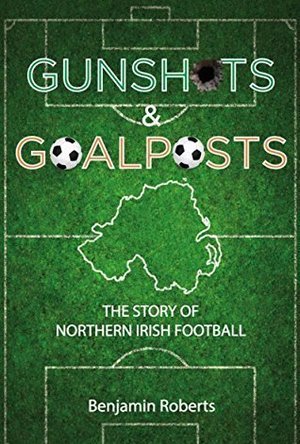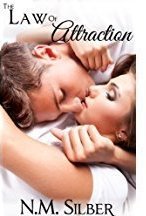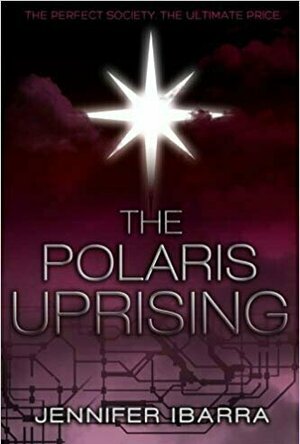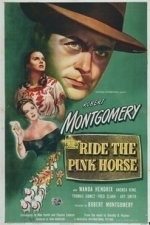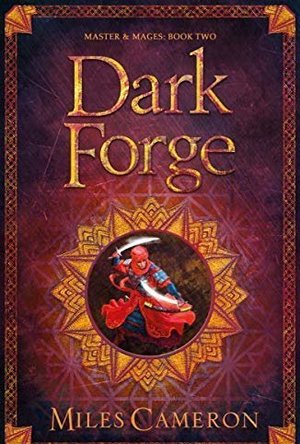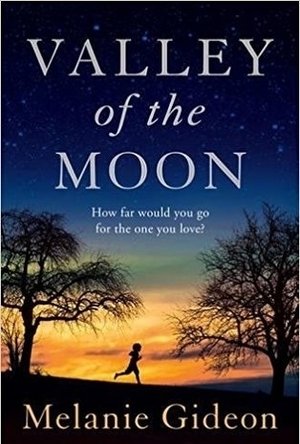Search
Search results
LilyLovesIndie (123 KP) rated Eight Days a Week in Books
Nov 5, 2018
A story about a manny who falls in love with his boss, Eight Days A Week captured my attention from the first time I read the summary. Never normally one for romances, I liked the unique spin it promised and tucked in with enthusiasm, hoping it would deliver so much more than your average boy meets girl romance. And boy did it. As you can see from the 5 star rating, I adored this book and have saved it firmly on my 'favourites' list on my kindle because, quite frankly, it was amazing, and here's why....
Firstly, I have to give credit to our author on the brilliance of the characters. Dee is amazing (and Don) and to see the way he grows throughout this book (no jokes about Don here please!) is just fantastic. Character development is always something I look out for in a book, and Johnson has done that splendidly here. It's believable, it's written with great skill and it really pulls you into the character and his story. Honestly, I could expect to bump into Dee on the street somewhere and he could be real, that's just how detailed and precise this book portrayed him to me. As a reader with limited time to give to different characters, it's great to see a character leap out the pages so well, even if it were to bring Don to visit me in my sleep!
I touched on it, but another thing that I adored about this book was the story line. It was different, fresh and told the story from a different perspective to what I usually encounter in this genre. I think this is in part due to how Dee tells the story himself, but it's so engaging I often found myself up late with eyes closing and smacking myself in the face with my kindle as I tried to read just another chapter. The 'Manny Log' was an excellent addition, and these frequently had me rolling with laughter at Dee and Don's commentary on things.
The book is full of these laugh out loud moments, but it's so much more than just comedy, and I think that is something that really made me enjoy this book that little bit more. The range of human emotions Johnson writes about in just one book is huge. But here's the best part, they're written with such excellent compassion, detail and, I'm harking back to it but it's important, believability that it's almost too much for me to describe. Sadness, love, raw need, sex, it's all there and it's all written so well that it draws you right in and you are compelled to keep reading. Without spoiling it, the ending was fantastic and left me teary eyed to the point I had to stop reading, but in such a good way!
Well, I can't recommend this book highly enough. I laughed, I cried, I cringed and I loved it. There's only two things I'd love right now:
1. Another sampling of Amber Johnson's writing
2. This book made into a movie so I can oggle Dee and Don in the flesh.
But don't take my word for it, pick up a copy and read it for yourselves!
*This book was first reviewed on Lily Loves Indie as part of a blog tour, for which an ARC was received in return for an honest review*
Firstly, I have to give credit to our author on the brilliance of the characters. Dee is amazing (and Don) and to see the way he grows throughout this book (no jokes about Don here please!) is just fantastic. Character development is always something I look out for in a book, and Johnson has done that splendidly here. It's believable, it's written with great skill and it really pulls you into the character and his story. Honestly, I could expect to bump into Dee on the street somewhere and he could be real, that's just how detailed and precise this book portrayed him to me. As a reader with limited time to give to different characters, it's great to see a character leap out the pages so well, even if it were to bring Don to visit me in my sleep!
I touched on it, but another thing that I adored about this book was the story line. It was different, fresh and told the story from a different perspective to what I usually encounter in this genre. I think this is in part due to how Dee tells the story himself, but it's so engaging I often found myself up late with eyes closing and smacking myself in the face with my kindle as I tried to read just another chapter. The 'Manny Log' was an excellent addition, and these frequently had me rolling with laughter at Dee and Don's commentary on things.
The book is full of these laugh out loud moments, but it's so much more than just comedy, and I think that is something that really made me enjoy this book that little bit more. The range of human emotions Johnson writes about in just one book is huge. But here's the best part, they're written with such excellent compassion, detail and, I'm harking back to it but it's important, believability that it's almost too much for me to describe. Sadness, love, raw need, sex, it's all there and it's all written so well that it draws you right in and you are compelled to keep reading. Without spoiling it, the ending was fantastic and left me teary eyed to the point I had to stop reading, but in such a good way!
Well, I can't recommend this book highly enough. I laughed, I cried, I cringed and I loved it. There's only two things I'd love right now:
1. Another sampling of Amber Johnson's writing
2. This book made into a movie so I can oggle Dee and Don in the flesh.
But don't take my word for it, pick up a copy and read it for yourselves!
*This book was first reviewed on Lily Loves Indie as part of a blog tour, for which an ARC was received in return for an honest review*
For the lovers of football and history - this book will be of your interest. If you happen to have any connecting with Northern Ireland as well - this book is made for you! I don’t think I fit in the description above. I love watching football - but I am not a football maniac, that knows who plays where, the club’s managers and who is on top of the Champion’s League this year. I love me some good sports matches, and I know a lot of players by name or face, but that’s about it.
Now - Gunshots & Goalposts: The Story of Northern Irish Football - the book that covers the stories of many football players in the past century in Northern Ireland.
While it covers so many stories, I wasn’t able to connect to any of the characters, and I choose to blame this on the way the book was written.
Which - is not a bad thing at all. Why? Because, this book is not meant to make you fall in love with the characters. It is instead, meant to show you the real picture of their lives, the politics that were ongoing in that time, and give you a brief history lesson of what you happened to miss in high school. All related to football, of course.
For me, it was very useful to learn a bit about the politics and history. Before I started the book, I knew NOTHING about Northern Ireland’s history. I knew NOTHING about their football history. This was a great first book for me to dive into the waters of the history of Northern Ireland's football.
The author, Benjamin Roberts, has done a wonderful job in the description and research. It covers a lot of the history period from the First and Second World War, the protestants vs catholics, the unionists vs nationalists, the east vs the west.
This book reminds me a lot of a movie that has been made in the country where I was born - Macedonia. The movie was called ‘’The Third Half’’ and deals with Macedonian Football during World War II, and the deportation of Jews from Macedonia. It reminded me a bit of this, even though in this book we don’t connect with the characters, or dive into their stories too much.
This is a three-star book for me - for the sole reason that this is not a book that I would usually read, and I wouldn’t read books similar to this one either. I enjoyed it, at times, but wouldn’t re-read it. However, I would definitely recommend it to people that love both football and history. I just prefer books where I connect with the characters.
Now - Gunshots & Goalposts: The Story of Northern Irish Football - the book that covers the stories of many football players in the past century in Northern Ireland.
While it covers so many stories, I wasn’t able to connect to any of the characters, and I choose to blame this on the way the book was written.
Which - is not a bad thing at all. Why? Because, this book is not meant to make you fall in love with the characters. It is instead, meant to show you the real picture of their lives, the politics that were ongoing in that time, and give you a brief history lesson of what you happened to miss in high school. All related to football, of course.
For me, it was very useful to learn a bit about the politics and history. Before I started the book, I knew NOTHING about Northern Ireland’s history. I knew NOTHING about their football history. This was a great first book for me to dive into the waters of the history of Northern Ireland's football.
The author, Benjamin Roberts, has done a wonderful job in the description and research. It covers a lot of the history period from the First and Second World War, the protestants vs catholics, the unionists vs nationalists, the east vs the west.
This book reminds me a lot of a movie that has been made in the country where I was born - Macedonia. The movie was called ‘’The Third Half’’ and deals with Macedonian Football during World War II, and the deportation of Jews from Macedonia. It reminded me a bit of this, even though in this book we don’t connect with the characters, or dive into their stories too much.
This is a three-star book for me - for the sole reason that this is not a book that I would usually read, and I wouldn’t read books similar to this one either. I enjoyed it, at times, but wouldn’t re-read it. However, I would definitely recommend it to people that love both football and history. I just prefer books where I connect with the characters.
BookblogbyCari (345 KP) rated Law of Attraction in Books
Aug 14, 2018
Book Review by Cari Mayhew.
I listened to this as an audiobook, and I feel this added to the feel of the story and improved my experience of the book. The narrator spoke in a stunning female American accent but would change voices for the male dialogue parts.
I was enticed by the book's description – a romantic drama between two high-flying Lawyers. I was expecting witty dialogue and real tension between the characters. This book is part of a two-book series and is intended for readers over the age of eighteen.
The central character is criminal defense lawyer Gabrielle, who has crushed on prosecutor Braden in their altercations in the Courtroom for several months. Braden, however, is quite the cad, and is known not have had any serious relationships in quite some time.
One evening the two of them meet in the local bar and a serious flirting session ensues. Despite how much characters lust after each other, Gabrielle has no intention of becoming a mere one night stand, and a succession of dates are negotiated.
Their first date is one to remember. Soon after they boyfriend-girlfriend are meeting each other’s family. But, there are some odd complications, and all does not run smoothly. Braden has a narcissistic ex-girlfriend Marla, who still can’t accept that they’ve broken up. More intriguingly, an old crush of Gabrielle’s, Cam, who took Gabrielle’s virginity, comes back into her life shadowing her law firm, and it turns out he’s Braden’s cousin, who is also the man that another ex of Braden’s once cheated with. Then Gabrielle receives threatening notes telling her to stay away from Braden.
Gabrielle and her friends start plotting to find out who is leaving the notes. They aim to get handwriting samples from the 3 people they suspect, and by some strange coincidence, all 3 are at the same secret underground fantasy party which gets raided, providing handwriting samples in the form of written statements.
Then the first book in the series comes to an end before the note writer is identified. Rather than it being one of the people Gabrielle suspects, I suspect the author aims to provide surprise by making it someone closer to home.
One saucy scene was on a par with Fifty Shades of Grey, but this book is not going to take off like Fifty Shades of Grey did. There was nothing unusual in these scenes other than perhaps the locations.
Whilst the book never bored me, I just didn’t care enough about the characters or plot to want to read the second book in the series.
For more of my reviews, check out www.bookblogbycari.com
I listened to this as an audiobook, and I feel this added to the feel of the story and improved my experience of the book. The narrator spoke in a stunning female American accent but would change voices for the male dialogue parts.
I was enticed by the book's description – a romantic drama between two high-flying Lawyers. I was expecting witty dialogue and real tension between the characters. This book is part of a two-book series and is intended for readers over the age of eighteen.
The central character is criminal defense lawyer Gabrielle, who has crushed on prosecutor Braden in their altercations in the Courtroom for several months. Braden, however, is quite the cad, and is known not have had any serious relationships in quite some time.
One evening the two of them meet in the local bar and a serious flirting session ensues. Despite how much characters lust after each other, Gabrielle has no intention of becoming a mere one night stand, and a succession of dates are negotiated.
Their first date is one to remember. Soon after they boyfriend-girlfriend are meeting each other’s family. But, there are some odd complications, and all does not run smoothly. Braden has a narcissistic ex-girlfriend Marla, who still can’t accept that they’ve broken up. More intriguingly, an old crush of Gabrielle’s, Cam, who took Gabrielle’s virginity, comes back into her life shadowing her law firm, and it turns out he’s Braden’s cousin, who is also the man that another ex of Braden’s once cheated with. Then Gabrielle receives threatening notes telling her to stay away from Braden.
Gabrielle and her friends start plotting to find out who is leaving the notes. They aim to get handwriting samples from the 3 people they suspect, and by some strange coincidence, all 3 are at the same secret underground fantasy party which gets raided, providing handwriting samples in the form of written statements.
Then the first book in the series comes to an end before the note writer is identified. Rather than it being one of the people Gabrielle suspects, I suspect the author aims to provide surprise by making it someone closer to home.
One saucy scene was on a par with Fifty Shades of Grey, but this book is not going to take off like Fifty Shades of Grey did. There was nothing unusual in these scenes other than perhaps the locations.
Whilst the book never bored me, I just didn’t care enough about the characters or plot to want to read the second book in the series.
For more of my reviews, check out www.bookblogbycari.com
Sophia (Bookwyrming Thoughts) (530 KP) rated The Polaris Uprising (Polaris, #1) in Books
Jan 23, 2020
Another bystander review yet again. T_T But throughout the story, I was making connections – yet again – to movies and books:
Corsets – Incarceron. Mercifully no prisons.
Probe Bots – *that seriously cute voice from that one movie* Wall-E! Of course, those robots had inflection and it's not Wall-E's voice I'm calling cute.
Arranged Marriages – At the time I started The Polaris Uprising, I completed Delirium not too long ago and it turned out to be a TERRIBLE experience. Fortunately, this book fared better off and it's not similar to Delirium. *phew* In fact... this quote got me quite worried:
<blockquote>When you’re president, this will all be a distant memory.</blockquote>
Is this similar to "When you're cured, this will all be a distant memory" or what? I could have sworn I saw that exact same sentence in Delirium a million times maybe. O_O (Obviously I didn't let that stop me from continuing).
Truth Serum – Welcome to the Candor faction. Need I say more?
That one sentence before this: And then all hell broke loose – Similar to The Hunger Games, but different. And no, that's no spoiler. Close, but no.
<blockquote>Alanna! Alanna!</blockquote>
e_e 1984's B! B! B! That book was quite dreadful, so I'm surprised I still remember the letter B! (that was not me in exclamation).
Now that I've gone through my dreadful (and some positive) experiences with some dystopians, let's get on with some positive notes and why I gave The Polaris Uprising a high rating:
~ The message comes across clearly throughout the book. Maybe confusing at first (switching views from the prologue and first chapter), but everything fits in nicely later.
~ Here's the big plus: it's different from other dystopians. As in really different. How? It's like many years later, a dystopian AFTER another dystopian failed. At least, that's what I assume. The signs were there, which brings me to my next point.
~ Dare to be different. I would've had to choose a faction back in September if I were in Divergent (Movie's out in 28 DAYS). Here, you're an adult at 25. That gives me what? 7-8 years to be a semi-kid? Yippee.
~ This might actually take a different end from other dystopians. Of course, there's no guarantee, so don't take that word for granted.
But overall, an impressive debut novel for Jennifer Ibarra.
-----------------------
Review copy provided by the author for review on the blog tour
Formatting is lost due to copy and paste
This review and more can be found at <a href="http://bookwyrming-thoughts.blogspot.com/2014/02/blog-tour-the-polaris-uprising-by-jennifer-ibarra-review-and-giveaway.html">Bookwyrming Thoughts</a>
<a href="http://bookwyrming-thoughts.blogspot.com/"><img src="http://4.bp.blogspot.com/-Gi5Rk5yLloA/UtliaUbdL3I/AAAAAAAACbE/J27z92_qrYU/s1600/Official+Banner.png"; /></a>
Corsets – Incarceron. Mercifully no prisons.
Probe Bots – *that seriously cute voice from that one movie* Wall-E! Of course, those robots had inflection and it's not Wall-E's voice I'm calling cute.
Arranged Marriages – At the time I started The Polaris Uprising, I completed Delirium not too long ago and it turned out to be a TERRIBLE experience. Fortunately, this book fared better off and it's not similar to Delirium. *phew* In fact... this quote got me quite worried:
<blockquote>When you’re president, this will all be a distant memory.</blockquote>
Is this similar to "When you're cured, this will all be a distant memory" or what? I could have sworn I saw that exact same sentence in Delirium a million times maybe. O_O (Obviously I didn't let that stop me from continuing).
Truth Serum – Welcome to the Candor faction. Need I say more?
That one sentence before this: And then all hell broke loose – Similar to The Hunger Games, but different. And no, that's no spoiler. Close, but no.
<blockquote>Alanna! Alanna!</blockquote>
e_e 1984's B! B! B! That book was quite dreadful, so I'm surprised I still remember the letter B! (that was not me in exclamation).
Now that I've gone through my dreadful (and some positive) experiences with some dystopians, let's get on with some positive notes and why I gave The Polaris Uprising a high rating:
~ The message comes across clearly throughout the book. Maybe confusing at first (switching views from the prologue and first chapter), but everything fits in nicely later.
~ Here's the big plus: it's different from other dystopians. As in really different. How? It's like many years later, a dystopian AFTER another dystopian failed. At least, that's what I assume. The signs were there, which brings me to my next point.
~ Dare to be different. I would've had to choose a faction back in September if I were in Divergent (Movie's out in 28 DAYS). Here, you're an adult at 25. That gives me what? 7-8 years to be a semi-kid? Yippee.
~ This might actually take a different end from other dystopians. Of course, there's no guarantee, so don't take that word for granted.
But overall, an impressive debut novel for Jennifer Ibarra.
-----------------------
Review copy provided by the author for review on the blog tour
Formatting is lost due to copy and paste
This review and more can be found at <a href="http://bookwyrming-thoughts.blogspot.com/2014/02/blog-tour-the-polaris-uprising-by-jennifer-ibarra-review-and-giveaway.html">Bookwyrming Thoughts</a>
<a href="http://bookwyrming-thoughts.blogspot.com/"><img src="http://4.bp.blogspot.com/-Gi5Rk5yLloA/UtliaUbdL3I/AAAAAAAACbE/J27z92_qrYU/s1600/Official+Banner.png"; /></a>
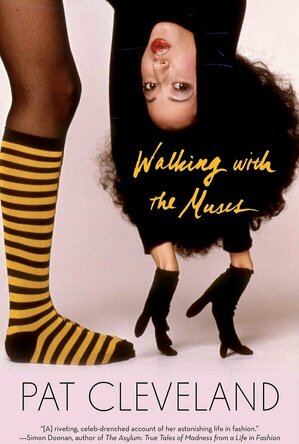
Walking with the Muses: A Memoir
Book
"Taking her reader through fifty years of fashion from the intersection of the Civil Rights...
Illeana Douglas recommended Ride the Pink Horse (1947) in Movies (curated)
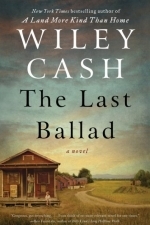
The Last Ballad
Book
The author of the celebrated bestseller A Land More Kind Than Home returns with this eagerly awaited...
Historical fiction
Ross (3284 KP) rated Dark Forge (Masters & Mages #2) in Books
Jan 30, 2019
Another slog of a book but with a good overall plot
*** I received a free advance copy of this book from NetGalley in exchange for an honest review ***
Dark Forge follows on from Cold Iron and sees the hero, Aranthur, travelling through the desert-lands battling against "The Pure", a group of magikal fundamentalists that believe access to the world's magik should be restricted to those of noble birth.
As a rare treat, the book starts with a lengthy prologue telling of a group of mercenaries working for the Pure attempting to storm an ancient site and gain ownership of a magical artefact. A few dozen pages break from Aranthur was welcome and this was an exciting part of the story. As with the first book, the narrative style is something of a barrier to me, all the mundane details of clothing, horses, weapons are expounded ad nauseum, but when something important happens, or some new magik is used suddenly it's all very vague and hand-wavey.
That brings us back to Aranthur. We pick up with him and his crew acting as messengers for the General's army, relaying messages back and forth across the divisions of the forces. At times this changes to acting as advance scouts, other times running messages through the middle of battles. Given the rest of the story is told from Aranthur's PoV alone, this means we can see a great deal of the action through his eyes.
At long last we are treated to something of an inventory from Aranthur, as he goes over the magik he currently knows and their purpose. This felt like a brilliant improvement over book 1, where he just did a magik thing somehow. However this is short lived as over the course of the book odd words are used, with little explanation (and always in italics, suggesting they are important words but for the life of me I couldn't remember what most of them were).
A major failing for this book for me was that despite all being from one character's PoV, and we hear plenty of his thoughts and feelings, we are not privy to his experimentation with magik or some of his suspicions and theories (he suddenly in the heat of battle tries something he had been thinking about and it works - would have been so much more effective if there had been any hint of this previously). Similarly, so much of it is all metaphysical nonsense which I can't stand and can only see it as a cheap way out for an author as you don't have to explain things if they're all mystical.
The book reads like maybe the 5th in a series, where all the magical aspects and parts and peoples of the world have been solidly embedded, rather than book 2 where the world-building is being done almost real-time and there is something of a making-it-up-as-he-goes-along feel.
The overarching plot of the book is solid, and while I would have liked to see more traditional combat like the first book, and less magical/mystical stuff the action was plentiful and reasonably well told.
As with the first book, its only about 400 pages but felt like so much more to me, and it really was a bit of a slog at times.
I will finish this series with the conclusion when it is released but have enjoyed other series a lot more.
Dark Forge follows on from Cold Iron and sees the hero, Aranthur, travelling through the desert-lands battling against "The Pure", a group of magikal fundamentalists that believe access to the world's magik should be restricted to those of noble birth.
As a rare treat, the book starts with a lengthy prologue telling of a group of mercenaries working for the Pure attempting to storm an ancient site and gain ownership of a magical artefact. A few dozen pages break from Aranthur was welcome and this was an exciting part of the story. As with the first book, the narrative style is something of a barrier to me, all the mundane details of clothing, horses, weapons are expounded ad nauseum, but when something important happens, or some new magik is used suddenly it's all very vague and hand-wavey.
That brings us back to Aranthur. We pick up with him and his crew acting as messengers for the General's army, relaying messages back and forth across the divisions of the forces. At times this changes to acting as advance scouts, other times running messages through the middle of battles. Given the rest of the story is told from Aranthur's PoV alone, this means we can see a great deal of the action through his eyes.
At long last we are treated to something of an inventory from Aranthur, as he goes over the magik he currently knows and their purpose. This felt like a brilliant improvement over book 1, where he just did a magik thing somehow. However this is short lived as over the course of the book odd words are used, with little explanation (and always in italics, suggesting they are important words but for the life of me I couldn't remember what most of them were).
A major failing for this book for me was that despite all being from one character's PoV, and we hear plenty of his thoughts and feelings, we are not privy to his experimentation with magik or some of his suspicions and theories (he suddenly in the heat of battle tries something he had been thinking about and it works - would have been so much more effective if there had been any hint of this previously). Similarly, so much of it is all metaphysical nonsense which I can't stand and can only see it as a cheap way out for an author as you don't have to explain things if they're all mystical.
The book reads like maybe the 5th in a series, where all the magical aspects and parts and peoples of the world have been solidly embedded, rather than book 2 where the world-building is being done almost real-time and there is something of a making-it-up-as-he-goes-along feel.
The overarching plot of the book is solid, and while I would have liked to see more traditional combat like the first book, and less magical/mystical stuff the action was plentiful and reasonably well told.
As with the first book, its only about 400 pages but felt like so much more to me, and it really was a bit of a slog at times.
I will finish this series with the conclusion when it is released but have enjoyed other series a lot more.
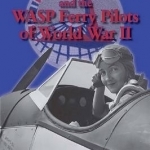
Nancy Love and the WASP Ferry Pilots of World War II
Book
She flew the swift P-51 and the capricious P-38, but the heavy, four-engine B-17 bomber and C-54...
Hazel (1853 KP) rated Valley of the Moon in Books
Sep 5, 2017
New Time Traveler's Wife
received this book for free through Goodreads First Reads.
For fans of The Time Traveler’s Wife (Niffenegger, 2003) this captivating story by Melanie Gideon is an alluring, spellbinding work of fiction about loving, being loved and finding somewhere you belong. With a touch of time travel in an otherwise typical reality, Valley of the Moon will excite, enrapture and touch readers’ hearts.
It is difficult to give a synoptic review without giving too much of the plot away. In short, the book contains the two lives of complete strangers who meet under extremely unlikely circumstances. It is 1975 and Lux Lysander is struggling to make ends meet as a single mother in San Francisco. Estranged from her parents, Benno has become her life; Lux would do anything for him. The other half of the story begins in 1906 in the Californian Sonoma Valley. Joseph has achieved his dream of creating an Edenic community where races and classes can live in harmony. Greengage is a self-sufficient society where everyone is seen as equal, however, something happens to shake up the peace – literally. A huge earthquake mysteriously leaves the valley unharmed but completely surrounded by a deadly fog. No one can leave and no one can enter, that is until Lux does.
Until the two characters’ lives collide, the narrative is fairly typical, but it quickly takes on a theme that most minds would attempt to debunk. Through a wall of fog, Lux can pass between 1975 and 1906, whereas Joseph and his friends can only stay in their own timeline. Lux begins to live a double life: one with her son Benno and one with the antiquated lifestyle of the Greengage community. Unfortunately, it is only possible to pass through the fog on a fall moon, and not necessarily every month.
Lux’s modern appearance and colloquialisms baffle the community but she soon finds herself a place amongst the inhabitants. For a while, Lux is able to keep her two lives separate, but one slip up causes her to temporarily lose the love and trust of her only son. Torn between her own flesh and blood and the only place she feels she belongs, Lux has to decide how far she would go for the people she loves.
One of the key themes of the novel is relationship. Although romance develops toward the latter stages of the story, the majority is focused on familial love and love between friends. Lux and Benno’s relationship is particularly important, especially when their love becomes strained by Lux’s secret dalliance with the past. The other significant theme is about finding oneself. Lux lives in an era where, despite developments in women’s equality, single mothers are still shunned. Conversely, in 1906 where historically things were worse for women, the egalitarian society feels much more like home.
Lux’s temerity is to be admired as she continues to visit the past despite it being beyond the bounds of possibility. More applaudable is her determination to win back her son as well as her distant parents.
Despite being set for the most part in the 1970s and 80s, Valley of the Moon has a futuristic air about it, with an element of fantasy and science fiction. It is almost a version of The Lion, the Witch and the Wardrobe (Lewis, 1950) but for adults, with more realistic themes. Melanie Gideon admits that she got the idea for the novel from the film Brigadoon (1954) in which the protagonist stumbles across a magical land in the woods. With similarities, Gideon has created her own version of this fairy-tale-like scenario.
Journeying through a range of emotions, Valley of the Moon is a story that engages readers from beginning to end. With ups and downs, the author explores the lives and personalities of the main characters, which develop beautifully over time. This book is not one likely to disappoint its readers.
For fans of The Time Traveler’s Wife (Niffenegger, 2003) this captivating story by Melanie Gideon is an alluring, spellbinding work of fiction about loving, being loved and finding somewhere you belong. With a touch of time travel in an otherwise typical reality, Valley of the Moon will excite, enrapture and touch readers’ hearts.
It is difficult to give a synoptic review without giving too much of the plot away. In short, the book contains the two lives of complete strangers who meet under extremely unlikely circumstances. It is 1975 and Lux Lysander is struggling to make ends meet as a single mother in San Francisco. Estranged from her parents, Benno has become her life; Lux would do anything for him. The other half of the story begins in 1906 in the Californian Sonoma Valley. Joseph has achieved his dream of creating an Edenic community where races and classes can live in harmony. Greengage is a self-sufficient society where everyone is seen as equal, however, something happens to shake up the peace – literally. A huge earthquake mysteriously leaves the valley unharmed but completely surrounded by a deadly fog. No one can leave and no one can enter, that is until Lux does.
Until the two characters’ lives collide, the narrative is fairly typical, but it quickly takes on a theme that most minds would attempt to debunk. Through a wall of fog, Lux can pass between 1975 and 1906, whereas Joseph and his friends can only stay in their own timeline. Lux begins to live a double life: one with her son Benno and one with the antiquated lifestyle of the Greengage community. Unfortunately, it is only possible to pass through the fog on a fall moon, and not necessarily every month.
Lux’s modern appearance and colloquialisms baffle the community but she soon finds herself a place amongst the inhabitants. For a while, Lux is able to keep her two lives separate, but one slip up causes her to temporarily lose the love and trust of her only son. Torn between her own flesh and blood and the only place she feels she belongs, Lux has to decide how far she would go for the people she loves.
One of the key themes of the novel is relationship. Although romance develops toward the latter stages of the story, the majority is focused on familial love and love between friends. Lux and Benno’s relationship is particularly important, especially when their love becomes strained by Lux’s secret dalliance with the past. The other significant theme is about finding oneself. Lux lives in an era where, despite developments in women’s equality, single mothers are still shunned. Conversely, in 1906 where historically things were worse for women, the egalitarian society feels much more like home.
Lux’s temerity is to be admired as she continues to visit the past despite it being beyond the bounds of possibility. More applaudable is her determination to win back her son as well as her distant parents.
Despite being set for the most part in the 1970s and 80s, Valley of the Moon has a futuristic air about it, with an element of fantasy and science fiction. It is almost a version of The Lion, the Witch and the Wardrobe (Lewis, 1950) but for adults, with more realistic themes. Melanie Gideon admits that she got the idea for the novel from the film Brigadoon (1954) in which the protagonist stumbles across a magical land in the woods. With similarities, Gideon has created her own version of this fairy-tale-like scenario.
Journeying through a range of emotions, Valley of the Moon is a story that engages readers from beginning to end. With ups and downs, the author explores the lives and personalities of the main characters, which develop beautifully over time. This book is not one likely to disappoint its readers.

